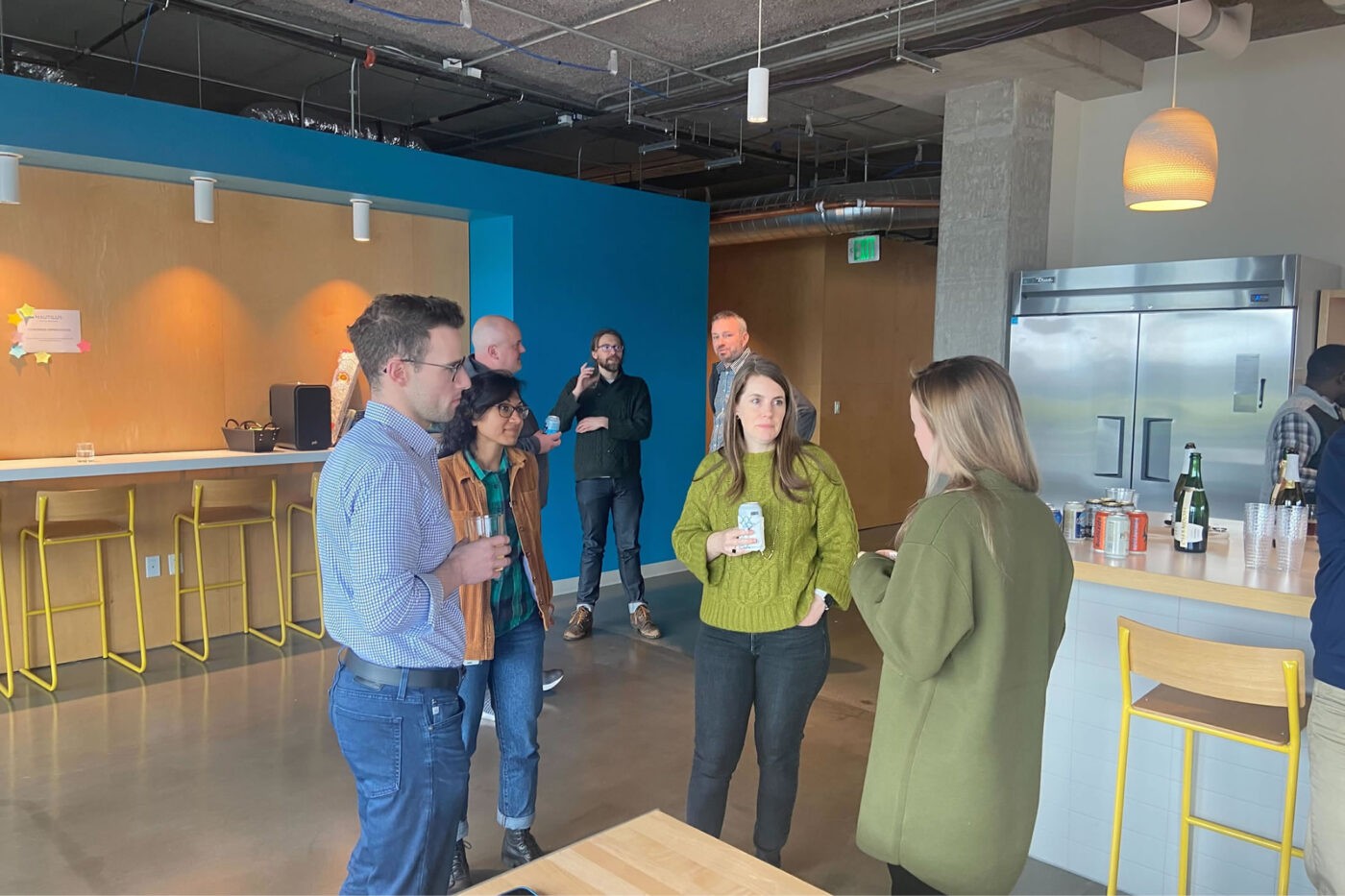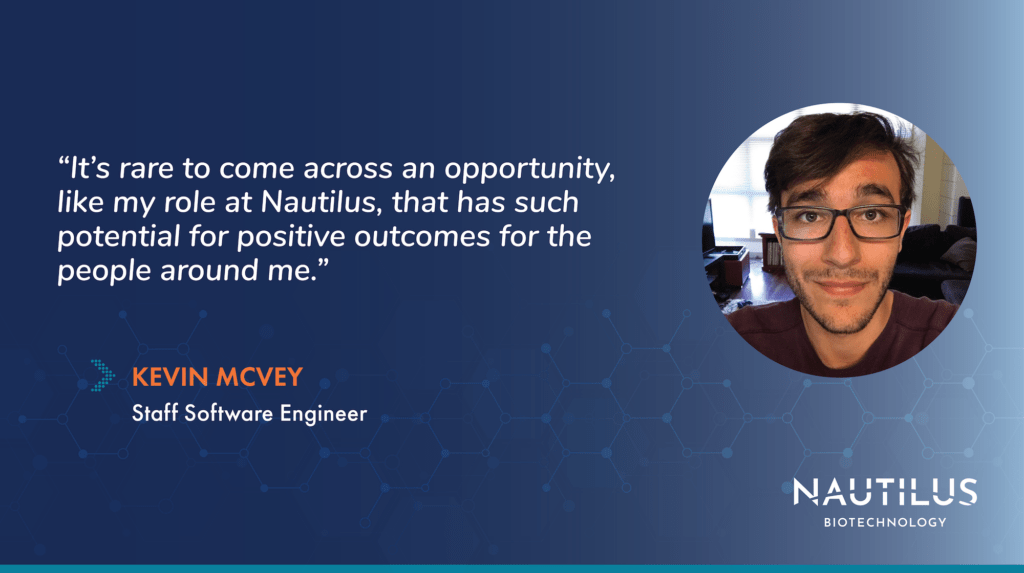
Interview with Kevin McVey – Nautilus Staff Software Engineer

Gracie Murphy
June 15, 2023

Kevin McVey, Nautilus Staff Software Engineer, has always enjoyed cracking open a new problem. Kevin plays an instrumental role in the development of the Nautilus Proteome Analysis Platform, decoding imaging data into a useful form that can be used to identify proteins. Programming computers to identify fluorescent probes attached to proteins across millions of images is no small feat, yet Kevin’s extensive experience in computer vision – the field of computer science that enables computers to identify and understand objects in images – makes him well suited to taking on the challenge. In this post, we learn more about Kevin’s experience at Nautilus and his exciting life outside of work.
What experiences or interests originally led you to pursue software engineering?
What I love about software engineering is that it allows me to make the things I want to see in the world around me. When I was in high school, I got involved in a robotics competition team. Being able to program the robot to do something I wanted it to do and compete in these competitions really inspired me to pursue software engineering as a career.
What was it about Nautilus that originally caught your attention and made you want to join the team?
For me it was the mission. It is wonderful as a software engineer to work towards a goal that is so beneficial to the world and will enable human flourishing. A lot of things you can do in the space of engineering are either net neutral or actively detrimental to the world. Especially for computer vision, you can go the direction of surveillance and weapons, or you can find the narrow selection of opportunities, such as medical imaging or artistic tools, that are more beneficial for society. It’s rare to come across an opportunity, like my role at Nautilus, that has such potential for positive outcomes for the people around me.
What is your favorite part about working at Nautilus?
My colleagues are such a pleasure to be around. I haven’t met anyone here who has been anything less than tremendously friendly and fantastic to work with. The other aspect I really enjoy is the interdisciplinary nature of my role. I have to think not only about what the code needs to do but also about the instrument, hardware, and chemistry. While I need to be a deep expert in computer vision and image processing, I also need to develop knowledge of optics, hardware, and chemistry to be an effective team member. This is a wonderful role for me as someone who loves continuous learning. I will never reach the bottom of the questions I may have.
What hobbies do you have outside of work?
I lead the education program at a nonprofit improv theater here in Seattle called Bandit Theater. I also perform in the cast of a show called Mad Science where we invite scientists to come give a presentation and then weave that research into an improv comedy show.
It’s a nice way to unplug from work and do something joyful, but what surprises a lot of people is how much of improv can be studied and learned. It doesn’t just come down to being funny or not funny. It is an actual skill you can pick up through analyzing scene structure or common ideas in comedy writing.
Improv teaches you empathy and collaboration – how to listen closely and align yourself to what others are doing. The goal is to build something together and have the team succeed. This ethos comes into play in engineering and at Nautilus directly. I am constantly thinking about what my colleagues are working towards and how I can help them achieve their goals.
MORE ARTICLES
